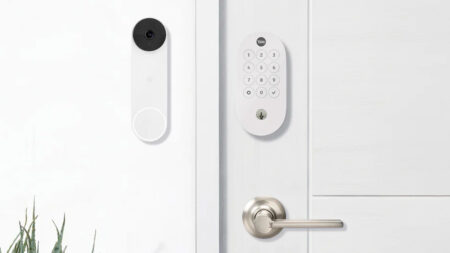According to a report, homes that don’t have a security system are three times more likely to be robbed. When thieves are searching through neighborhoods to determine which house has the best chances for a successful burglary, they look out for wired or wireless security cameras that provide video surveillance, or security system stickers around the perimeter.
If they do, the majority of the time they move on to one that doesn’t have any security perimeter. Obviously, you want to do everything possible you can to protect your home from unwanted intrusion.
The question is not whether or not to invest in a home security system, but which one to go for as there are two different kinds, wired and wireless.
Of course, systems that use wired equipment have been around for a lot longer, hardwired into the electrical system of the home (sometimes the landline), but many are starting to see them as outdated.
Wireless security systems are becoming increasingly popular, thanks to their flexibility when it comes to installing, upgrading, or moving to a new location. If you’re already considering turning your house into a smart home, this can be a great addition. But like other things, it’s not absolutely perfect.
No matter what wireless security camera you choose, you’ll want your family and home to be safe at all times.
Following are the pros and cons of wireless security systems that will help you choose one that best fits your requirements.
》Pros of Wireless Security Systems
Quick and Easy Installation
Installing a wireless security system is quick and pretty easy as there’s no tricky wiring or drilling involved. It’s generally a simple DIY process which also means no pricey installation fees are involved.
Most of these systems have a self-adhesive, so it’s as easy as just sticking it to the wall.
You can also install it wherever you’d like since you don’t have to be limited by the clutter of phone wires. If you’re not interested in having a professional to handle the task you just have to make sure it’s done right.
This way you’ll have much lower installation fees than with a wired system.
Added Protection
These systems provide enhanced protection as there are no physical cables that can be cut, disabling the alarm. You’ll only be able to disable your home’s wireless security system with a password.
Wireless security systems that are technically advanced and more flexible to use often have better features than the traditional systems.
With a connected ecosystem of devices, you can sync it to your locks, thermostats, lights, and much more.
Simple to Upgrade or Modify
Those of you with some basic technical skills will love to tinker with the wireless aspect of such a security system. The hardware of a wireless system can easily be modified or upgraded when the need arises as it isn’t hardwired.
You can easily add extra sensors as and when the need arises.
Simple to Move
As there aren’t any wires that have to be ripped out of the walls, or professional assistance needed, the equipment is easy to remove and move to a new place without sustaining any damage to the home.
You’ll be able to remove the security system with minimal or no damage at all, which is a great advantage.
Remote Operation and Home Automation
The equipment can be used remotely to arm or disarm the system, communicating wirelessly via cellular technology, allowing you to take control with a mobile device from virtually any part of the globe.
It can also sync with other home automation features. For example, you can lock or unlock your doors or gain access to a panic button to inform the local emergency services.
This gives you peace of mind that your home is protected, even when you’re away.
Also Read: Tips to Upgrade Your Home Security and Keep Intruders at Bay
》Cons of Wireless Security Systems
Risk of Hacking
Even though there are no wires to be cut, a wireless security system isn’t entirely secure.
Although it’s a rare occurrence, there is the possibility of a criminal potentially hacking into a wireless alarm system, jamming the signals to prevent an alarm from going off.
But if the system has an encrypted signal, this is much less likely. Having the latest Wi-Fi password security system helps prevent this from happening.
Signal Interference
While it isn’t common, a wireless system is susceptible to interference like a smartphone that can’t find a signal.
There are a number of things you might not suspect that can cause this, such as power lines, thick structural walls, and electromagnetic activity.
All of them can interfere with the signal relayed by the security system.
Size Matters
If you have an expansive home, ordinary wireless security systems may not be the best option as they’re limited in distance.
As their sensors have limitations, they are better for a small- or medium-sized home with an open-air range of up to 500 feet.
Fortunately, now you can get high-end home security equipment to secure a larger than average home too.
Battery Replacement
As most of these systems run on batteries without any backup power options, you’ll have to remember to check periodically to ensure it has enough juice left for operation.
If the batteries die, the alarm won’t function until they’re replaced.
While this can be annoying, just being aware of it can ensure that you’re always protected without any hiccups.
All these factors should be taken into consideration when going for a wireless security system installation. Clearly, the advantages of a wireless security system hugely outweigh the disadvantages.
If the wireless system is chosen wisely after doing a bit of research, the disadvantages can be avoided to a large extent.
There are plenty of options in the market. It is vital to choose one that is secure, suits your needs, has the scope for upgrade and periodic updates.
Follow Homecrux on Google News!




